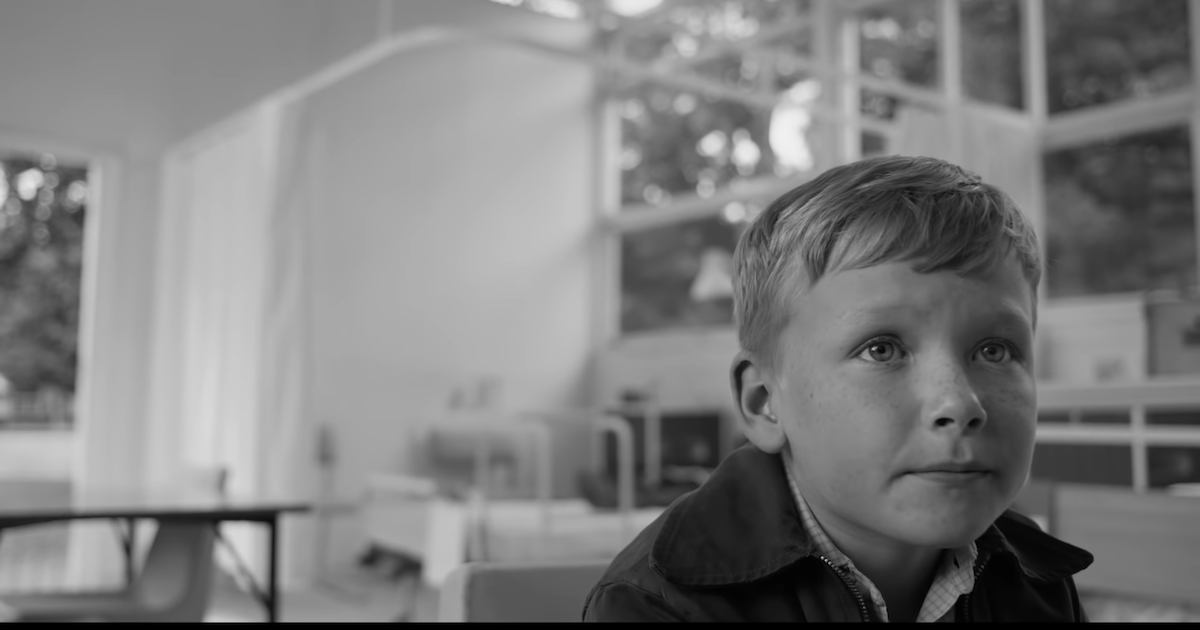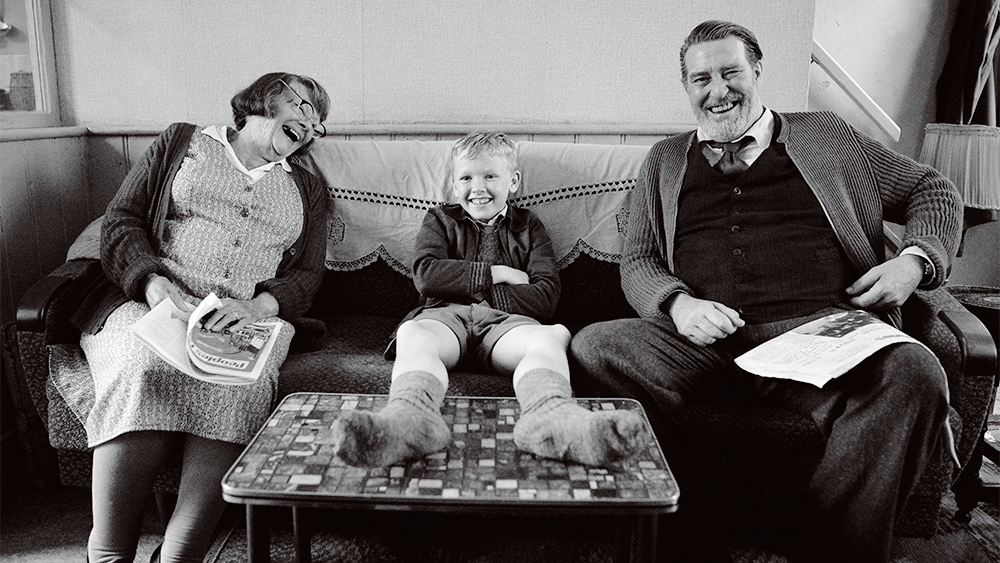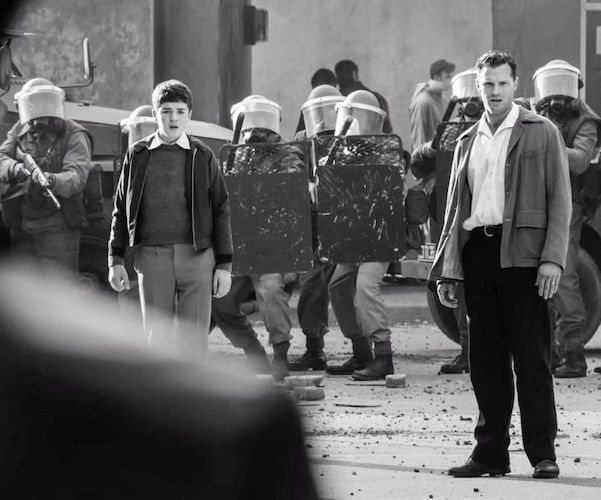With Belfast, Kenneth Branagh has done a thing increasingly common for filmmakers in the second halves of their careers, which is to look back on their upbringings with a mixture of nostalgia and the sort of serious consideration that confers artistic credibility. Successful directors earn the opportunity to do this, as their success affords them the freedom to pursue this sort of passion project, as well as to make the subject matter interesting to the audience in and of itself. We feel almost like these directors are characters we are familiar with, so their back stories, if you will, have natural appeal. Branagh even borrows the stylistic choice of Alfonso Cuaron during his own similar project, Roma, which is to shoot in black and white.
Whether Belfast actually reveals anything interesting about what made Branagh who he is today is up for debate. Like in Cuaron’s film, the character based on him is not necessarily the central character, nor the one around whom most of the drama revolves. We see the young Kenneth stand-in – called Buddy and played by Jude Hill – go to the movies and engage in other coming-of-age rituals, like interactions with school teachers, crushes, and petty theft from the local milk bar, or whatever name those shops went by in Belfast of 1969. The going to the movies part certainly shows us the birth of a love of cinema, but that’s a story all future filmmakers have in common.
The uncommon part of Branagh’s experiences was to live in Belfast during “The Troubles,” the period that saw continued violence in Northern Ireland between Catholics and Protestants, which may have started in the late 1960s but didn’t end until 1998 with the Good Friday Agreement. This is the backdrop and also part of the plot of Belfast, though as only a nine-year-old, Buddy has a minimal role, mostly an observer. The bigger impact was on his parents (Jamie Dornan and Caitriona Balfe). Buddy’s pa works overseas in England, and faces pressures to join Protestant political actions when he’s home to visit on weekends. Buddy’s ma tries to keep things together when he’s gone.
The film is purposefully divided between the lighter neighbourhood hijinks and the fire bombings. There’s more of the former than the latter, as the film intentionally tries to restrict itself to what was observable by Buddy – even if it does include some scenes that Buddy could not have witnessed, just to give greater dimension to the drama. However, this betwixt and between approach seems to remove some of the weight of this tragic period in Irish history. Branagh didn’t want to make a movie expressly about The Troubles – other filmmakers have done that and done it well – but the perspective on it here feels limited in some ways.
Greater emotional resonance is derived from the relationship between Buddy and his grandparents, played by Ciaran Hinds and Judi Dench. These scenes marry Branagh’s serious and sentimental sides. There’s plenty of joy and frivolity between Buddy and his Pop and Granny, which lays the groundwork for the potential loss Buddy will experience if his parents do the thing they’re talking about doing – leave Belfast to move “across the water” to England. Or, if his grandparents succumb to the frailty of their ageing bodies.
There’s a lot to like on screen in Belfast without any of it landing as much as it might. That’s true in a quite literal sense. You’d think that filming in black and white automatically makes a movie look good, but really, it’s just that people usually only do it if they’ve hired a great director of photography. Haris Zambarloukos does not have a big track record outside of the films of Kenneth Branagh, but he’s certainly made Branagh’s last eight films pop. The period set design and the film stock lend a real sheen of prestige to the film and make it extremely easy on the eyes.
A couple performances were recognised with Golden Globe nominations, and rightly so. Caitriona Balfe is a name not widely known outside of her handful of appearances in Hollywood films over the years, but she really conveys the conflict experienced by this family, whose father is away most of the time, in a way that compensates for some absences in Branagh’s depiction of what was going on in Belfast. Dornan and Hinds also received supporting actor nominations to accompany Balfe’s supporting actress nomination. The fact that they’re all characterised as supporting performances, though, gets at the way this film doesn’t really have the centre that might make more of an impression.
Belfast clearly made an impression on the Hollywood Foreign Press, as the film’s seven total Golden Globe nominations (winning for Branagh’s screenplay) tied with The Power of the Dog for the most this year. Belfast is the sort of film that tends to lose steam between its initial reception and when the time comes for Oscar nominations – not that this is a particularly valuable way of measuring its success as a film. It does pinpoint that there is something ultimately slight about it, even as it culminates in a powerful closing image involving Dench’s Granny. Each viewer must decide whether the lingering impression of Belfast is sticking the landing, or never fully taking off before that.
Belfast opens today in cinemas.


